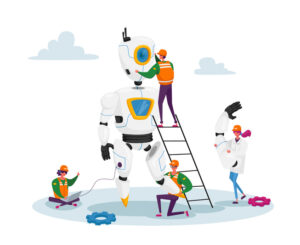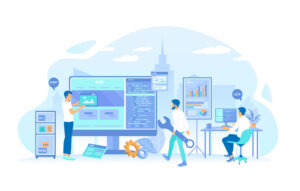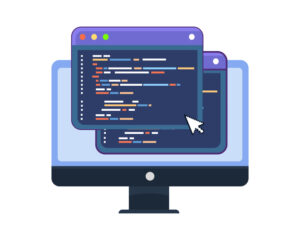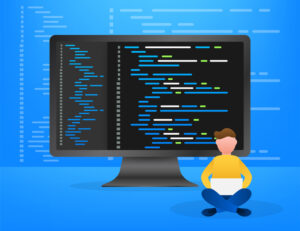In the world of data, it’s easy to get lost in a sea of job titles, roles, and buzzwords. Two of the most common titles you’ll hear are “Data Scientist” and “Data Analyst.” While both positions involve working with data to uncover insights and drive business decisions, the roles themselves can be quite different. Let’s break down the distinctions between data scientist vs data analyst.
What Is a Data Scientist?
A Data Scientist is the modern-day data wizard. These professionals not only analyze data but also create advanced algorithms and machine learning models that can predict future trends, automate decisions, and solve complex problems. They tend to work with big data and apply statistical techniques to find patterns that aren’t immediately obvious.
Example: If a retail company wants to forecast demand for a product, a Data Scientist will build predictive models that analyze factors like past sales, seasonal trends, and external influences like weather or market conditions.
What Is a Data Analyst?
A Data Analyst, on the other hand, takes a more straightforward approach to data. These professionals focus on collecting, cleaning, and interpreting data to produce reports, visualizations, and actionable insights for business teams. They help organizations understand the data they already have and translate that information into decisions that improve business performance.
Example: A Data Analyst at an e-commerce company might look at historical sales data to determine which products are performing best, then create visualizations to present this to the marketing team for better promotional strategies.
Skills and Tools: Data Scientist vs. Data Analyst
The skill sets of Data Scientists and Data Analysts overlap in some areas, but each position requires a unique set of competencies.
- Data Scientist Skills:
- Programming Languages: Python, R, SQL
- Tools & Frameworks: Hadoop, TensorFlow, Spark
- Mathematical & Statistical Knowledge: Advanced algorithms, machine learning, deep learning
- Big Data Expertise: Dealing with large datasets that require sophisticated tools for processing and analysis
- Data Analyst Skills:
- Programming Languages: SQL, Excel, Python (basic)
- Tools & Frameworks: Tableau, Power BI, Excel, Google Analytics
- Data Cleaning & Transformation: Ensuring data is usable and accurate
- Reporting & Visualization: Presenting data in a clear, actionable way for decision-makers
Career Paths: How to Get There
If you’re trying to decide whether to pursue a career as a Data Scientist or a Data Analyst, it helps to understand the career paths and educational backgrounds required for each.
- Data Scientist Career Path:
- Typically requires a strong background in mathematics, statistics, and computer science.
- A degree in computer science, engineering, or a related field is often necessary, and many Data Scientists also have advanced degrees (Master’s or Ph.D.).
- Practical experience with machine learning, programming, and big data tools is essential.
- Data Analyst Career Path:
- A degree in statistics, mathematics, economics, or business analytics is often sufficient.
- While technical expertise is required, Data Analysts may not need the depth of knowledge in algorithms and machine learning that Data Scientists do.
- Many Data Analysts start with roles in reporting and gradually take on more complex data analysis tasks.
Which One Is Right for You?
Deciding between Data Science and Data Analytics often comes down to your personal interests, strengths, and career goals. If you’re excited about solving complex problems, working with algorithms, and building predictive models, Data Science might be the right fit. If you enjoy interpreting data, creating reports, and presenting insights to stakeholders, Data Analytics might be the better choice.
Example: A person who enjoys coding and problem-solving might lean toward Data Science, while someone who enjoys communication and data visualization may find Data Analytics more rewarding.

Conclusion
Both Data Science and Data Analytics are essential in today’s data-driven world, and neither role is better than the other. It’s all about what kind of work you want to do and the skills you want to develop. Whether you’re predicting future trends or providing insights into past performance, data professionals are in high demand — and there’s plenty of room for both Data Scientists and Data Analysts to make their mark. Choose wisely, and let the data lead you to success.








